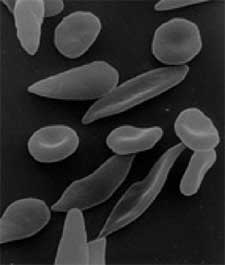Can You Become Immune to Malaria?
People regularly exposed to malaria build up partial immunity, if they survive to adulthood. They may get the disease, but it will be less severe. This partial immunity disappears if the person leaves the region and is no longer regularly exposed to malaria-carrying mosquitoes. Are there other ways people can be protected from this disease?
In African countries south of the Sahara desert, people regularly are bitten by mlaria-carrying Anopheles mosquitoes. As a result, they build up some immunity to the disease. For this reason, most malaria cases—and most severe malaria cases—in Africa occur in young children, who do not have fully developed immune systems. From adolescence on, people rarely get full-blown malaria. The exception: pregnant women, whose weakened immune systems leave them vulnerable to the illness. Areas such as Africa also maintain an infectious reservoir—people with low levels of the Plasmodium parasites in their blood who never get sick with malaria.
In regions where malaria comes and goes, such as Latin America and Asia, immunity develops in cycles. People of all ages can get malaria, which occurs in epidemics. After a malaria epidemic ends, people retain their immunity for a time. But with no regular exposure to the illness, the immunity disappears.
|
Photo courtesy of NIH. This photomicrograph shows normal disc-shaped red blood cells and the elongated red blood cells of sickle cell disease. |
Some people inherit genetic protection from malaria, although this protection can come at a significant cost to a person’s health. Those with the genes for sickle cell disease and for thalassemia (called traits) rarely get sick when bitten by infected mosquitoes. Both thalassemia and sickle cell involve deformation of red blood cells. This may make infecting the red blood cells difficult for Plasmodium parasites. Carriers—people with single copies of the sickle cell or thalassemia traits—do not get those diseases or malaria. However, people with two copies of the genes may not get malaria but they suffer diseases that can be painful and debilitating. Sickle cell trait occurs mostly in Africans and people of African heritage living in other countries around the world. Thalassemia generally affects people of Mediterranean, Middle Eastern, North African, or South Asian heritage.
Natural immunity goes only so far to protect people from malaria. People can protect themselves in many ways from the mosquitoes that spread malaria. What actions can be taken? Is a vaccine possible?
This content has been re-published with permission from SEED. Copyright © 2025 Schlumberger Excellence in Education Development (SEED), Inc.


